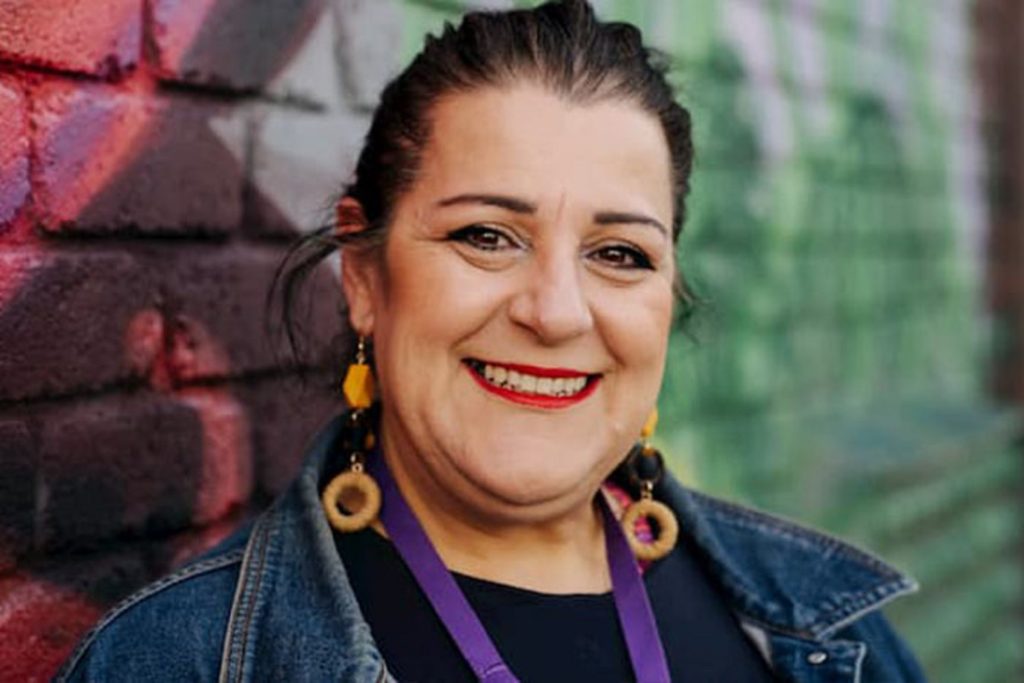Back in 2001, Kon Karapanagiotidis and a group of students he was teaching at TAFE began coordinating food packs to distribute to people seeking asylum in Australia.
The initiative was about providing immediate support to some of the most vulnerable people in the community, often living with virtually no support or resources at their disposal. At the time, it was viewed as a short-term project, but quite quickly, the need for wider support for people seeking asylum in Australia became abundantly clear.
The project soon ballooned into an essential service, and ultimately led to the establishment of the Asylum Seeker Resource Centre (ASRC), the Melbourne based human rights organisation providing aid and support to people living in some of the most precarious situations in Australia.
Anastasia Magriplis, the Director of Services and Advocacy Operations at the ASRC, says Kon’s initial vision in 2001 was for a “point in time intervention”, but it’s now clear the ASRC is an ongoing, necessary support, and chance for people to feel empowered and equipped to rebuild their lives.
“Over the last two decades, the needs of people seeking asylum in this country have grown, and we’ve just had nine years of a horrendous regime where we saw the demonisation of people who have been in limbo for so long,” Anastasia told Women’s Agenda recently.
“The needs of people seeking asylum in Australia have become much more complex and there’s always more to do.”
The ASRC takes a multi-pronged approach to improving outcomes for people seeking asylum, focusing on both advocacy and lobbying for policy reform, as well as providing services to keep people sustained and safe, giving them access to basic human rights like healthcare, food, shelter, and legal representation.
The ASRC also provides targeted support to help people thrive, including an education and employment program and a dedicated women’s empowerment service.
As Anastasia told Women’s Agenda, people seeking asylum often don’t have access to Medicare, work rights and are trying to build a new life on unstable visas.
“Many people can spend years in that limbo state, so we prioritise supporting people who would otherwise be in really precarious situations,” Anastasia said.
The pandemic hit and demand exploded
When the pandemic struck in March 2020, the ASRC experienced a rapid uptick in demand for their services and at one point during Melbourne’s longest lockdown, there was a 200 per cent increase in demand.
“It was a perfect storm of vulnerabilities and terrible things happening to people,” Anastasia explains. “The stress and trauma of insecure status in this country was compounded by the economic reality of the pandemic.”
Anastasia said that most people seeking asylum and refugees living in Australia were excluded from the financial interventions put in place for other people by the federal government.
“People who have been able to sustain themselves by driving Ubers, for example, or in other kinds of work in the gig economy, suddenly weren’t able to continue. It just led to a surge of people that needed to be supported during that period,” Anastasia said.
“For two years we went in and out of lockdowns and all sorts of protocols were in place for mainstream society, and often this community was excluded from that.”

The ASRC’s Rapid Response Team
One of the positives to come out of the pandemic for the ASRC was that it showed them what they were capable of being able to deliver.
The experience of heightened pressure has led to the development of the Rapid Response Team, designed to better respond to the immediate needs of people presenting for support.
“We really had to ramp up far beyond what we thought we were capable of doing, and we did it really successfully,” Anastasia said.
“We realised that the model of being able to immediately triage people, and understand how we can meet their immediate needs – whether it’s through the services we provide or access to information to other services that are more applicable – was something we should invest more in.”

Over recent months, the ASRC has been undertaking co-design sessions with the people who use their services to understand how they can be even better at supporting people with their evolving needs
“What I love about the ASRC is that we are open to learning, we are not stuck in dogma, and we will adapt to what is more meaningful to people who need our services,” Anastasia said.
“We want to use this experience to create a space where people feel comfortable, and it feels culturally safe, and they can ask for what they need, whatever that may be.
“It’s about empowering people to help them take control of their lives again.”
You can find out more about the ASRC and donate to their latest appeal, A Chance for Change, here.

